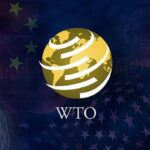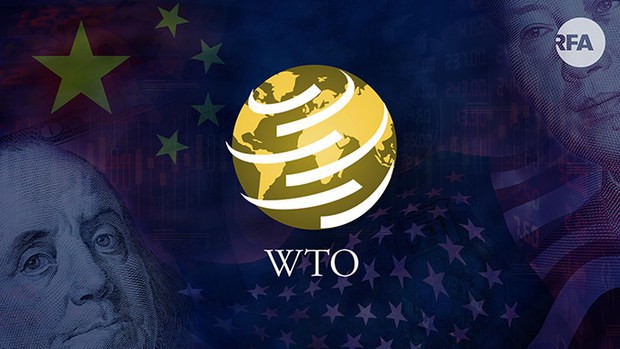Twenty years after joining the WTO, has China kept its promises?


This Saturday is the 20th anniversary of China's accession to the World Trade Organization (WTO). Over the past two decades, China's economic and trade strength has achieved rapid development on the one hand, and on the other it has also raised more and more doubts in the outside world. So, 20 years after China joined the WTO, what kind of report card and political economy did China get ?
China's Deputy Commerce Minister Wang Shouwen recently said that China has fully fulfilled its commitments when it joined the WTO / WTO, as several WTO directors and most member states have universally acknowledged and acknowledged.
Doubts are getting stronger
Many signs show that many countries disagree on this point. Nikkei reported that in the eighth round of the WTO review in October, the US raised more than 2,500 objections to China's business practices , an increase from the previous review round in 2018. Nearly a sixth. After China announced its formal request to join the Comprehensive and Progressive Trans-Pacific Partnership Agreement (CPTPP) in September, participating states such as Japan and Australia have subsequently questioned whether the current Chinese system meets the high standards of this agreement.
Yu Weixiong, a professor at the Anderson School of Management at the University of California, Los Angeles, made it clear that from the current situation, it was a mistake for China to initially be allowed to join the WTO / WTO, because instead of using this to integrate better in the international system, China has brought a huge impact on the Western economic structure.
“ At first (many countries) believed that after China's accession to the WTO, as the economy developed, the authorities would make some adjustments to its economic structure and political system, but that didn't happen. Instead, it only caused a lot of unemployment in the US and Europe ”.
United States Senator Marco Rubio, who has always been tough on China, said in a speech Wednesday that China's WTO accession threatens the global free trade system, because this decision pushes a company it doesn't pursue. neither economic freedom nor economic freedom. who do not pursue personal freedom have amassed much wealth at the expense of American interests. Rubio said that in the first ten years after China's accession to the WTO, the United States lost a third of jobs in the industry. A similar argument is valid for Europe. China had to have changed through trade, but instead it was she who rocked the world.
Looking at the promises made by China when it joined the WTO / WTO, these were impressive. For example, in terms of economic policy, China's first promise is to accord the same treatment to Chinese companies, foreign companies and individuals in China. As for state-owned enterprises, China has pledged not to directly or indirectly influence the business decisions of state-owned enterprises or state-owned enterprises. Regarding export subsidies, China promises to abide by the WTO / WTO agreement on subsidies and compensatory measures and to phase out subsidies that are inconsistent with the rules, as well as subsidies provided to state-owned enterprises will be subject to the same constraints.
However, the WTO / WTO Secretariat released a report in September that state-owned still occupies a central position in the Chinese economy. Even in some non-strategic and business-oriented industries, state-owned enterprises still have market share. considerable, while business reforms are basically It was carried out only in the framework of the mixed ownership reform.
Charlene Barshefsky, the former U.S. trade representative who had negotiated with China to join the WTO / WTO, in a seminar jointly organized by the Asian Society Policy Institute (ASPI) and the Washington International Trade Association (WITA) Thursday It was stated at the meeting that national leaders play a very important role in economic and trade affairs and Chinese President Xi Jinping is obviously unwilling to make concessions on matters of central concern.
"Xi Jinping made it clear that China has its own political system, ideology and economic structure, and this will not change."
United States: China has not kept its promises
During the review of China's trade policy in October this year, the United States expressed particularly harsh views. The minutes of the WTO / WTO meeting show that the United States stressed that when China joined the WTO, member states expected China's commitment to destroy those policies and practices incompatible with the open international trading system and market oriented. comes true and China seems unwilling to make any changes.
During the review, the US also said that its main concern for the Chinese trading system is its industrial policy. The Chinese government is not only seeking to lead and support domestic industries, but also to use a range of policies to eliminate imported goods and services, as well as foreign manufacturers and service providers, including market access restrictions, investment restrictions and large subsidies. US Trade Representative Katherine Tai pointed out in this year's "Assessment of Trade Barriers between Countries" that China has not provided full notification of central government subsidies in the past two decades since its accession to the WTO. .
Chinese financial scholar He Jiangbing said China's rapid economic development following its WTO accession has obviously made a huge contribution to global economic growth. But at the same time, this has also made China increasingly independent.
“The United States wants China to change, but things are counterproductive. Especially for an economy like China which is not entirely a market economy, it is even more reluctant to make changes ”.
The changes in the size of the Chinese economy after China's accession to the WTO are evident. According to UN data, China's total foreign trade last year was 8.1 times that of 2001, far exceeding the 1.8 times growth rate of total global trade over the same period, and also China's share in world trade increased from 4% to 13%. During this period, China went from the sixth largest economy in the world to the second largest economy, and its trading volume also jumped to the top of the list.
Long Yongtu, China's chief WTO negotiator, said in a seminar Thursday that although China is a beneficiary of WTO membership, other countries have also reaped dividends.
“Due to the low labor price and high worker efficiency when China joined the WTO / WTO, China was able to produce many high quality and low cost products. I think this has largely helped the US economy keep inflation low and injected diversification into the US market product. "
Entry into the WTO / WTO involves high costs
However, beneath the surface of the economic boom, the blood and tears of tens of thousands of people are buried, and smog, cancer villages, exploitative factories and other natural and social phenomena that seem to have no borders are destined to become difficult for the Chinese for a long time Scars healed.
In 2001, China's gross domestic product (GDP) was US $ 134 million, or 4% of the global total. By 2019, China's GDP reached US $ 14.28 trillion, accounting for more than 16% of the global total. However, a study conducted by the Chinese University of Hong Kong three years ago showed that premature deaths and reduced food production caused by air pollution alone could cost the Chinese economy 267 billion yuan per year. US public health expert Zhong Yan Huang pointed out that last year, when counting the cost of non-fatal diseases, China could suffer up to 18% of its GDP from the loss, which does not include the cost of pollution. water and soil.
Qin Weiping, an economist in the United States, believes that the time has come for China to say goodbye to the model of economic development it has followed since joining the WTO / WTO and take a more humane path.
“I think this vast phase of low human rights, low protection, high energy consumption and high pollution in China over the past two decades should end, and China cannot continue to do so, because it ultimately harms others and themselves, and it is also unsustainable. from."
If history is a mirror, we may not need to look too far in terms of China's compliance with trade commitments. Just two months ago, US trade representative Dai Qi just announced that China has not kept its promises made in the first phase of the US-China trade agreement. He also said last month that the United States holds Beijing authorities accountable. At this point it cannot be expected that China's permanence in the debt or remains at current conditions. Western countries will do their utmost to ensure that the general conditions are changed.

Thanks to our Telegram channel you can stay updated on the publication of new articles of Economic Scenarios.
The article Twenty years after joining the WTO, has China kept its promises? comes from ScenariEconomici.it .
This is a machine translation of a post published on Scenari Economici at the URL https://scenarieconomici.it/a-ventanni-dalladesione-al-wto-la-cina-ha-mantenuto-le-promesse/ on Fri, 10 Dec 2021 11:00:27 +0000.
